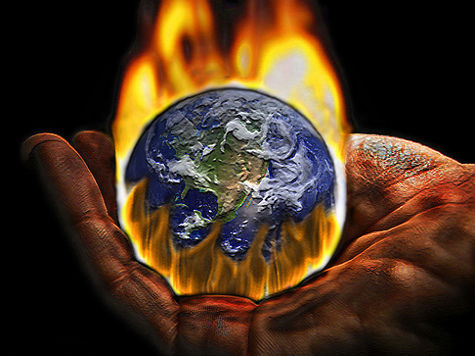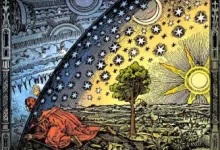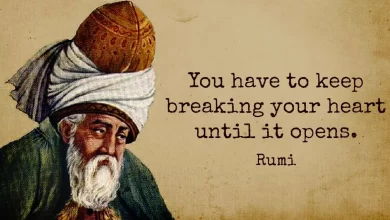
That is How Our Civilization is Self-Destructing
It must be plain to see to anybody remotely sane or considerate that our civilisation has reached a disaster level. We face a stable three to 4 a long time of escalating disaster now. The 2030s, when local weather change turns into extreme, tearing aside financial and geoplanetary stability, megafires and megafloods and mega hurricanes and drought and famine and absence turn out to be grim every day realities. The 2040s, when mass extinction rips aside the fundamental programs of our civilisation, from meals to water to air to drugs. And the 2050s, the last decade of the Lengthy Goodbye, when the ultimate collapse of ecologies leaves a lifeless planet in its wake, soil turned to mud, oceans to acid, harvests fallow, rivers run dry.
That’s the trajectory we’re on now. And whereas we’re making minor league makes an attempt to alter it — decarbonizing our economies at a nonexistent tempo, for instance — we don’t fairly appear to grasp the dimensions of apocalypse that’s now upon us. And that’s as a result of we don’t have the psychological instruments, the ideas, the frameworks. We’re trapped mentally — and socially — in industrial age concepts of productiveness, effectivity, and so forth.
What we don’t have, however we’d like, are measures of how optimistic and unfavourable our civilisation actually is. Within the largest attainable sense. Life and demise. I name a type of the Thanatos Issue. It’s named after Freud’s “Thanatos,” or demise drive. It asks the query: how harmful is our civilization, actually? How a lot demise, despair, and destroy does it trigger, for every life it creates?
Have you ever ever puzzled how harmful our civilisation actually is? By now, I’m positive you’ve — even when your thoughts tries to run away, as a result of it’s a profoundly uncomfortable thought. Possibly you noticed photos of animals burning to demise in megafires. Possibly you noticed pictures of scarred forests, or polluted rivers. Possibly you’ve learn concerning the extinction of the bees and bugs and fish. Possibly you reside in a spot that’s been toxified, bodily, or a rustic that’s been poisoned, politically and socially and economically. All that’s Thanatos. We don’t add it up. We consider this stuff as disconnected. However they’re the identical factor, actually — destroy, demise, destruction — and we should always add them up. What occurs after we do?
Don’t fear concerning the exact, actual math — that’s for future generations of economists. Proper now we’re simply going to consider this query, conceptually, philosophically. It’s an enormous query, a troublesome query. But when we don’t wrestle with it — then the trail we’re on, the trail of runaway disaster, stays the one path there may be.
A technique to consider Thanatos is that over the past 5 a long time, the human inhabitants has roughly doubled, from 4 billion to eight billion. However on the identical time, there’s been a mass extinction of each different type of life. 4 billion people have been created. However to create them, it required our civilisation to kill off trillions of beings, animals, fish, bushes, bugs, and so forth. That’s a massively, massively unfavourable Thanatos.
One other means to consider Thanatos is when it comes to what number of lives we nonetheless enslave, to be able to slaiughter. I imply, after all, animals. By way of biomass, cattle now vastly outstrip wild animals by orders of magnitude — that means there are billions extra lives which are merely enslaved and destroyed by our industrialised programs for meals, drugs, and agriculture. That, too, is a massively unfavourable Thanatos, at the least in the event you consider that animals need to stay with just a little dignity, too, not simply caged and slaughtered.
Right here’s a startling statistic. By way of matter, biomass, 36% are human, 60% are livestock, and simply four% are wild. That implies that 36% of the biomass on earth — us — is killing one other 60%. And simply four% is allowed to stay free. Is it any marvel there’s a mass extinction happening?
There, we might even start to quantify Thanatos — it’s 36 minus 60 plus four, which is unfavourable 20%. By way of mammal biomass, Thanatos is unfavourable 20% — that means that we destroy 20% extra mammalian life than we create. Any marvel our planet is dying?
And we deal with mammals comparatively properly. We at the least feed them and home them, earlier than we slaughter them or check our medicine on them and so forth. The remainder of life? The oceans and rivers and mountains and forests? We don’t take care of them in any respect. Following that logic, Thanatos for non-mammalian life, which is the remainder of life on earth, bugs, fish, bushes, and so forth, must be much more unfavourable than minus 20%. And it must be even worse than that for abiotic matter — soil, oceans, and so forth, matter that helps life, however we don’t think about alive.
And that’s precisely what the proof reveals. There’s a mass extinction ripping via the pure world, the primary synthetic, human-made one, and it will get worse the additional away from mammalian life you get. Bugs, fish, bees — bang! Being killed off at startling charges. Then there’s the desertification of topsoil, the erosion of water tables, the air pollution of the oceans, the drying of rivers, and so forth — all accelerating. That is one other type of extinction, the demise of ecologies, not simply species. Do you see how, properly, scary all that is once you actually give it some thought?
Let me join all these dots. Thanatos is a really critical and really actual drawback for our civilisation. It destroys vastly, vastly extra life than it creates. How rather more? For mammalian life, roughly 20% or so. For non-mammalian life, the quantity is tougher to estimate, however we all know it’s far, far worse — most likely within the lots of. And for abiotic matter, stuff we have to stay that isn’t thought-about alive — water, air, soil — it’s even worse than that.
Our degree of Thanatos is off the charts.
And that’s simply to everybody and every part else. What about to ourselves?
Thanatos, too, can and may measure our personal self-destruction. How would possibly we try this? Fairly merely. Norway is without doubt one of the world’s happiest nations — and it has one of many world’s highest life expectations, at 82.6 years. America has the 40th, at 78.5 — and is means much less pleased than Norway. Norway’s happiness is available in at about 7.5 out of 10, and America’s nearer to six.5. That implies that yearly, there are 33 million life-years of an entire level of happiness misplaced in America. No marvel America’s plunged into hate, violence, brutality, and cruelty — despair makes individuals lose their minds, as trauma’s battle/flight/freeze response kicks in.
I do know that is all summary and difficult. Take your time and chew on these concepts.
What I feel is badly, badly improper in our civilisation is the best way that we conceptualise and take into consideration the world. We do it in an economistic means — we take a look at “prices” and “advantages.” However prices and advantages have been a calculus created for the economic revolution — not the world of at present, of local weather change, mass extinction, ecological collapse. Utilizing an out of date paradigm doesn’t appear to be getting us very far.
Our statistics and measures are all badly outdated. GDP doesn’t even measure carbon emissions. Carbon emissions, in the meantime, don’t actually measure how a lot they have an effect on life. And so forth. The result’s that economists and pundits take a look at out of date knowledge, like GDP and “income” and “incomes” which don’t carry a lot info anymore, and have a tendency to suppose that issues are doing OK. In different phrases, they’ve a large optimism bias, commit a fallacy of pondering positively, as a result of they don’t seem to be taking a look at numbers that signify reality very properly anymore. Certain, GDP is rising, however solely at the price of every part that issues anymore, from democracy to sanity to the planet to life on it. We don’t measure all that stuff, however we ought to.
Why? Not simply to play mental video games. However to create the roles and industries and careers of the long run. If we had working measures of say, sanity, democracy, life, the planet’s well being, and so forth, then we might create industries and jobs to handle them. That’s occurring, albeit far too slowly. We’d like complete careers like “planetary economics managers” and “human influence builders” and “ecology designers” and “systemwide potential engineers” and so forth. I do know these are tacky titles — they’re tacky exactly as a result of we’re doing so badly inventing them that they nonetheless sound like science fiction largely.
All that may be a little bit about why Thanatos issues. We will’t go on as a civilisation anymore. Blindly. Pretending that we aren’t getting it badly improper, because the world round us begins to break down — just because our out of date paradigms and numbers don’t seize that reality, as a result of they have been by no means meant to. We will’t keep this blind for for much longer. We have now perhaps a number of years left, at finest, and the longer we keep blind, even now, all that can occur is that we’ll be all that rather more shocked when the now inevitable dislocations of local weather change, mass extinction, and ecological collapse thunder down on us. Covid is only a tiny, tiny trace of all that.
So that you inform me. How harmful do you suppose our civilisation actually is? After I make even again of the envelope makes an attempt to calculate this quantity I name Thanatos — life, happiness, risk, over demise, despair, and destroy — I shudder. We’re used to glorifying our civilisation as the neatest and most creative and richest in historical past. But it surely’s additionally probably the most harmful, violent, and ruinous.
We have now to alter that, my mates. Now. In these subsequent few years. Or else our civilisation doesn’t have a future.
If Thanatos is unfavourable — if a civilisation creates extra demise, despair, destroy than life — then a civilisation is simply too harmful to outlive. If it’s optimistic, then again — if a civilisation creates extra life, happiness, and risk than demise, despair, and destroy — then it’d simply make it.







